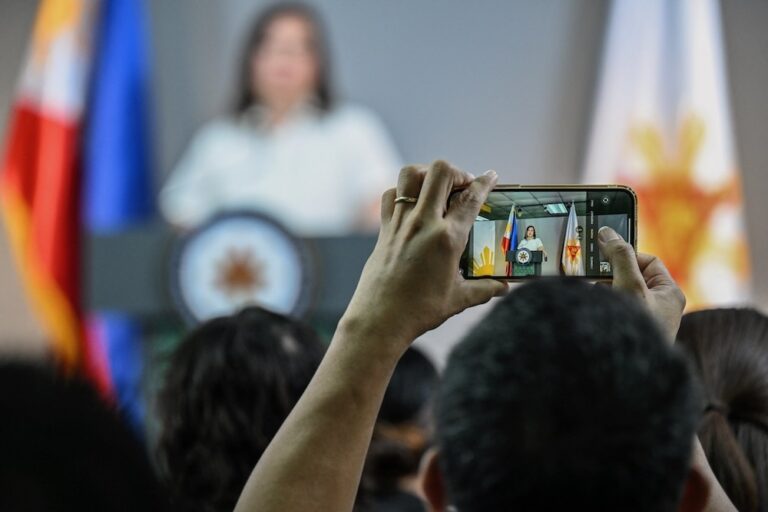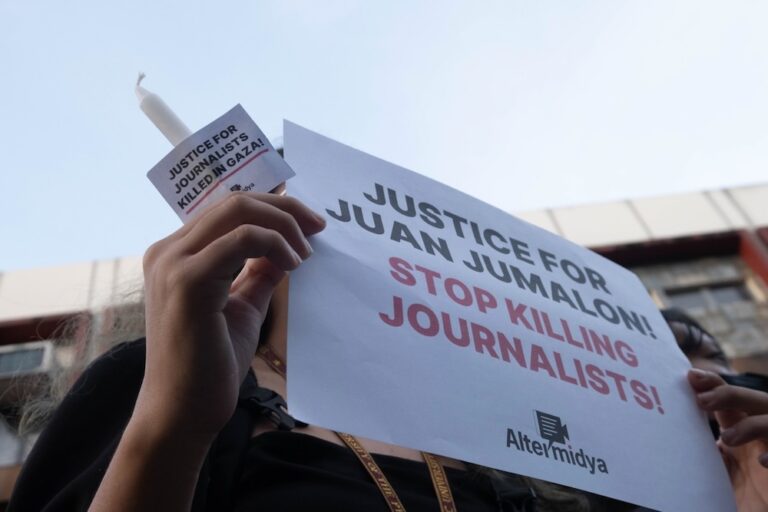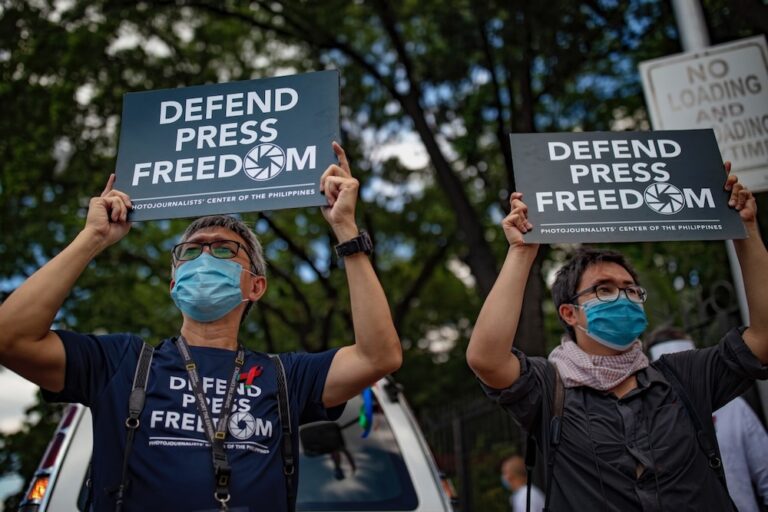(CMFR/IFEX) – The Philippine’s second highest government official said that he was “just joking” when he ordered his bodyguard to kill a tabloid reporter on 13 February 2008, after the latter repeatedly asked whether he was ready to assume the presidency if President Gloria Macapagal Arroyo resigned or was removed from office. Arroyo is facing […]
(CMFR/IFEX) – The Philippine’s second highest government official said that he was “just joking” when he ordered his bodyguard to kill a tabloid reporter on 13 February 2008, after the latter repeatedly asked whether he was ready to assume the presidency if President Gloria Macapagal Arroyo resigned or was removed from office.
Arroyo is facing increasing calls for her resignation in the face of a series of anomalies haunting her government, including a multimillion dollar project to build a national broadband network for the government which also allegedly involves her husband Jose Miguel “Mike” Arroyo. The project was eventually junked in the wake of testimonies by key actors in the project and widespread public criticism.
During an interview with reporters at the launching of a government housing project, Vice President Noli De Castro turned to his bodyguard and asked him to kill “People’s Tonight” reporter Jeffrey Tiangco.
De Castro, a former television broadcaster for TV giant ABS-CBN 2 and the constitutional successor to Arroyo, was apparently annoyed when Tiangco, dissatisfied with the vice president’s answer, repeatedly asked him whether he was ready to succeed President Arroyo. ABS-CBN 2 is the biggest media conglomerate in the country.
“Can you kill this guy?” de Castro asked one of his bodyguards.
A visibly shaken Tiangco asked de Castro whether he meant it. The vice president did not answer him and turned to other reporters.
After the interview, Tiangco approached de Castro to say that he did not mean to badger him but that he was simply doing his job as a reporter. De Castro said the supposed threat was merely a joke.
A representative from the vice-president’s office reiterated that de Castro’s statement was only a joke.
If a joke it was, it was made in the context of unabated extrajudicial killings which have claimed the lives of journalists and activists, among others, for most of which government security forces have been blamed. Seventy journalists or media practitioners have been killed in the line of duty since the institutions of democracy were restored in 1986, while some 800 political activists have been killed since 2001.
The relationship between the government and the media has also been increasingly fraught with tension after the arrests of over 30 journalists who covered the Manila Peninsula standoff (see IFEX alerts of 29 November 2007). The arrests, plus a series of threatening statements from high-ranking government officials, forced several media organizations and dozens of journalists to file suits against the government demanding that it stop media arrests and harassment (see IFEX alerts of 30 and 21 January 2008).


